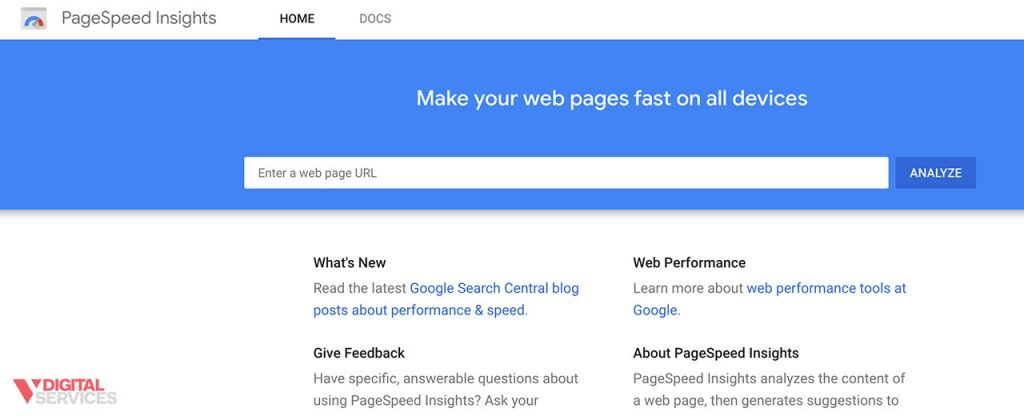Keeping up with the news this year has been a challenging and often harrowing task. With all of the events of 2020, you may have missed some of the changes to the search marketing industry throughout the year.
Luckily, we’ve been paying really close attention to everything that has changed and evolved in our industry over the last year, and we have a pretty good idea of what we can expect as we get into 2021.
There are a number of significant developments recently and some great indicators of what we can expect moving forward. Armed with these clues, strategic marketers can adjust their approach to take advantage of every opportunity and avoid every potential pitfall.
Here are some of the SEO trends you can expect in 2021:
- The Role of Artificial Intelligence (AI) in Search
- Creating Content for Humans, Based on Intent
- PageSpeed Insights Evolved: Core Web Vitals & Cumulative Layout Shift
- Mobile-First Mentality is Increasingly Critical
- Increased Emphasis on Privacy & Security
- Local Search Optimization Will Be More Important Than Ever
The Role of Artificial Intelligence (AI) in Search
Artificial intelligence has played an ever-increasing role in organic search results over the last several years. In 2015, Google confirmed RankBrain – the integration of AI into the evolution of its core algorithm evolution. Since then (and likely even prior to that date), machine learning has been a critical part of how Google’s algorithms have evolved and grown more sophisticated.
 In 2018, Google engineers published BERT, an exciting new take on natural language processing with pre-training. BERT (Bidirectional Encoder Representations from Transformers) has since been fully integrated into the core algorithm resulting in significantly improved semantic context in their indexation and subsequent search results.
In 2018, Google engineers published BERT, an exciting new take on natural language processing with pre-training. BERT (Bidirectional Encoder Representations from Transformers) has since been fully integrated into the core algorithm resulting in significantly improved semantic context in their indexation and subsequent search results.
The improved speed and accuracy of contextualized consumption of web page content has allowed Google to return considerably more relevant search results. These advancements allow Google to filter out the many weak, spammy, and over-optimized pages published by overzealous marketers over the years and increase their emphasis on previously difficult quantifying metrics like the expertise, authority, and trustworthiness (E-A-T) of content.
Late in 2020, there was a lot of buzz around BigBird, Google’s new hotness in the evolution of NLPs. This new and improved process expands the capabilities of the search engine to process sequences up to eight times longer than with BERT.
Long story short, machine learning and AI will continue to be a significant part of Google’s approach to site valuation & searcher intent assessment throughout 2021.
If you haven’t already started learning about natural language processing and integrating those principles into your approach to optimizations and content creation, you’re already a lap behind the early adopters. It’s catch up time!
Creating Content for Humans, Based on Intent
Search engines will continue to go to greater lengths to assess and meet user intent. Google has gone to great lengths to understand their user’s intent and return results that are well aligned.
Going back to 2010 with Google’s Caffeine update, which integrated new result types into the SERPs – things like news, images, and videos were previously only available on their own separate tabs – Google was trying to understand what people expected to see when they searched, and provide them a better search experience.
In 2014, Google introduced featured snippets, which was their best guess at what searchers were probably looking for. There was such confidence in the algorithm that the results were injected in front of all other organic results.
Of course, over the years, those results have evolved and given rise to zero-click results, essentially stealing traffic opportunities away from many sites and, in some cases, Google allegedly stealing content outright.
With the improvements in NLP, content contextualization, and trusted entity assessment, Google continues to improve its ability to estimate the intent behind a user’s query and return results closer to their desired experience.
Expect the shift away from ‘optimizing for robots’ and toward ‘writing for humans’ to continue through 2021 and beyond. If your content approach doesn’t already center around user experience and the expertise, authority, and trustworthiness of the content and its writers – this is the time to start focusing on great content.
In addition to stronger, longer-form, text-based content, smart marketers should be integrating a variety of content types and formats in their content strategies to better match the searcher’s intent.
Google has recently made significant adjustments to its indexation and SERP displays for image assets – indicating their growing emphasis on visual asset results. In comparison, Cisco projects that video content consumption will soon surpass all other forms of content. In most industries, content strategies without image and video assets will miss out on a significant portion of the potential audience.
From snackable content elements formatted for quick consumption (think FAQs) to featured snippet oriented content to video and image assets – a well-optimized content strategy in 2021 will need to be formatted with the consumer’s intent in mind to best serve their audience.
PageSpeed Insights Evolved: Core Web Vitals & Cumulative Layout Shift (CLS)
Core Web Vitals can be accurately described as the next evolution of PageSpeed insights. PageSpeed is a known and confirmed Google ranking factor and has long been on the radar for technical SEOs. This update expands the data set we’ve become accustomed to with PageSpeed and adds in more advanced assessments of a web page’s user experience.
 The most notable revision to the available insights is probably CLS (cumulative layout shift). This metric attempts to measure how often users on a page experience unexpected shifts in the page’s layout and the severity of those shifts.
The most notable revision to the available insights is probably CLS (cumulative layout shift). This metric attempts to measure how often users on a page experience unexpected shifts in the page’s layout and the severity of those shifts.
We’ve all experienced the frustration of thinking a webpage has finally loaded, attempting to click on a page element (button, etc.) only to have it shift down or over. Now, since some other element was still loading, we’ve clicked on something else entirely.
CLS will officially be integrated as a ranking factor in the algorithm early in 2021, and without direct action to improve these experiences, many websites will be heavily impacted. Suppose you’re not already integrating page experience optimization into your SEO efforts. In that case, it’s time to dust off those CRO and coding skills because this effort will involve more web development than most SEO’s have experienced.
Mobile-First Mentality is Increasingly Critical
Google is committed to serving people at their point of interest, and more often than not, this occurs on a mobile device. Google is keenly aware that since 2016, more searches take place on mobile devices than on desktops.
 As a result, Google has taken major steps to assess the quality, relevance, and user experience of a website’s mobile experience before reviewing its desktop version. Coined ‘mobile-first indexing,’ Google has been transparent about its shift to emphasizing the mobile user experience.
As a result, Google has taken major steps to assess the quality, relevance, and user experience of a website’s mobile experience before reviewing its desktop version. Coined ‘mobile-first indexing,’ Google has been transparent about its shift to emphasizing the mobile user experience.
Mobile-first SEO requires more than bolt-on page optimization elements – it starts at the core construction of the website, including its styling, image requests and compression, down to the sizes of fonts and interactable elements like buttons.
This emphasis on mobile-first continues to be a major focus for Google and other search engines as the search user base continues to tip toward mobile devices.
We can expect mobile experiences to continue to increase in importance in 2021 and the years to come.
Increased Emphasis on Privacy & Security
Google has been obsessed with security for many years and, as early as 2014, emphasized HTTPS as a ranking signal. Yet, as hard as it might be to believe, there are still a staggering number of legitimate small business websites that haven’t made the shift to HTTPS.
This is a simple and effective way to ensure a website gets full consideration from Google and meets the average consumer’s growing security concerns.
On the other hand, Google is on the other side of personal data security and privacy when it comes to advertising pixels. The conversations around data privacy have been heating up for a while now, with advertisers like Google and Facebook taking great liberties with user data in an ever-evolving effort to improve ad alignment and increase influence on potential buyers.
Google and Apple are currently in a somewhat heated exchange around cookie data, tracking users, and privacy. Google is once again in hot water in Europe over Google Chrome data/privacy issues. Google and Facebook are under enormously increased government scrutiny over user data, privacy, and security concerns.
Privacy and security have long been an important part of the online consumer experience and consideration for search marketers. Still, more than ever, 2021 is shaping up to be a battleground for consumer privacy, and security will likely be a growing and ever-more critical factor for many consumers.
Take special care to identify areas of potential concern for your audience, and ensure you have gone the extra mile to put them at ease. Establishing trust will go a long way in encouraging faster, more satisfying conversion experiences.
Local Search Optimization Will Be More Important Than Ever
Local SEO has been a critical focus for websites with a specific physical location and/or service area for many years. Google is keenly aware that search intent is often very localized, even when the particular query is not.
For example, someone searching for “pizza” is unlikely to be interested in pizza restaurants in another city or state and much more likely to be interested in ordering a pizza for delivery from somewhere local.
This sort of localized intent has been a part of Google’s SERPs for many years. It has evolved steadily to the current Google Maps / Google Business Profile platforms we have today – in addition to Google’s heavily geo-centric organic results in the ‘regular’ SERPs – for many queries.
2020 saw massive shifts in search behavior as quarantining kept people from engaging in many of the activities they have previously enjoyed – including dine-in restaurants, shopping centers, amusement and entertainment hotspots, etc.
New query clusters and themes emerged, including ‘curbside pickup,’ capacity restrictions-based reservations, and massive growth in food and retail delivery.
We can expect to see the evolution of search results and search queries continue into 2021, with many categories and themes very likely to stay with us well into the future as customers have enjoyed the convenience of new shopping and dining experiences – while others are aching to return to normal social situations. Either way, geo search results will continue to be a critical battlefield for local businesses and an important part of SEO strategy.
We can expect that Google Business Profile page optimization and localization of the primary brand website will continue to be incredibly important parts of your SEO strategies well into 2021 and beyond.
Our Top SEO Trends to Watch out for in 2021
There will be many exciting changes and adjustments within SEO throughout 2021. Strategic marketers will have a lot of new elements to address and loads of adjustments to existing elements to consider.
These six trends and tips are just our top picks for the most critical changes in SEO that deserve special attention this year. It’s important to keep yourself informed and on top of these changes as they happen in order to have the most successful SEO performance possible.
Partner With VDigital Services for Your SEO Needs
Learn more about how a professional agency partner can keep your SEO campaigns on track and help optimize your website to perform better in organic search and drive more traffic and revenue by contacting V Digital Services today.
References:
- https://www.semrush.com/blog/seo-trends/
- https://www.searchenginejournal.com/10-important-2021-seo-trends-you-need-to-know/389395/
- https://www.searchenginewatch.com/2020/12/23/seo-trends-2021-what-every-marketer-should-know/
- https://www.webceo.com/blog/seo-trends/
- https://www.cardinaldigitalmarketing.com/blog/top-seo-trends-every-marketer-needs-to-know-in-2021/
- https://en.rockcontent.com/blog/seo-trends/
- https://www.link-assistant.com/news/seo-trends-2021.html
- https://makewebbetter.com/blog/google-seo-trends-rank-higher-your-site/
- https://www.spyfu.com/blog/seo-trends-this-year/
- https://inlinks.net/p/insight/entity-based-seo/
Featured Image: Alexander Supertramp/Shutterstock


 PREVIOUS
PREVIOUS